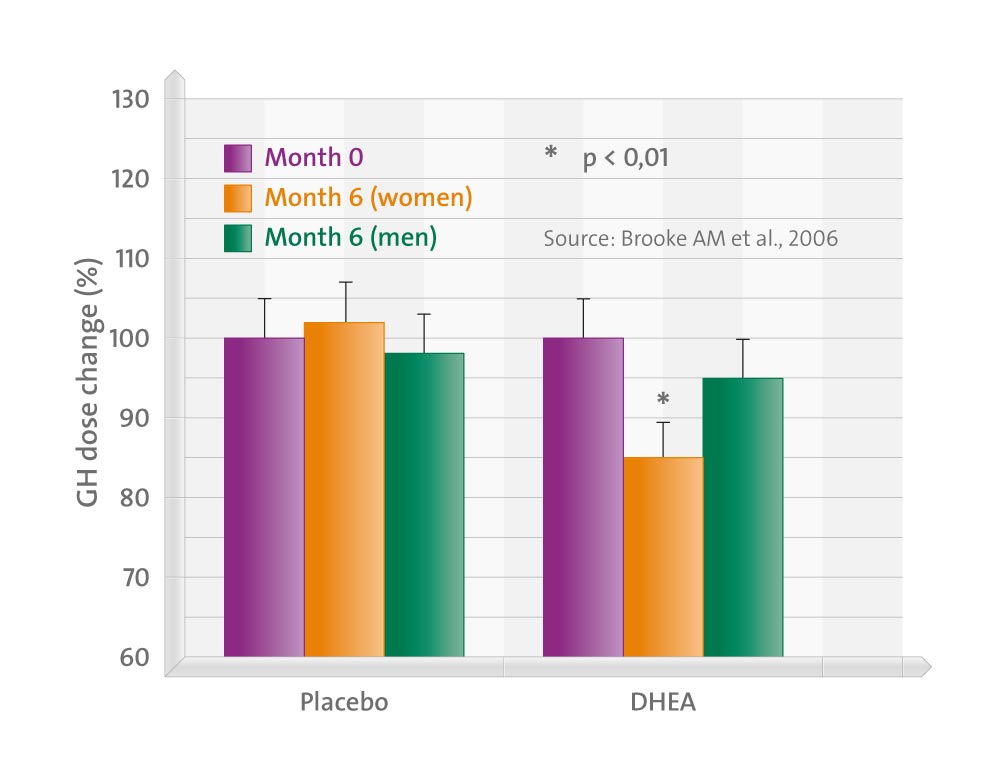Objective
GH dose requirement is lower in ACTH replete compared with ACTH deficient hypopituitary patients suggesting that adrenal androgens may augment IGF-I generation for a given GH dose. This study aimed to determine the effect of dehydroepiandrosterone (DHEA) administration on GH dose requirements in hypopituitary adults.
Design
A double blind placebo controlled trial was conducted adding 50 mg DHEA to the standard replacement of hypopituitary patients, including GH, over an initial 6 months, followed by an open phase study of 6 months DHEA replacement and a final 2 month washout phase after DHEA withdrawal. The dose of GH was adjusted to achieve a constant serum IGF-I.
Patients
Thirty female and 21 male hypopituitary patients were enrolled. Data from 26 women and 18 men were analysed after patient withdrawal.
Measurements
The primary outcome objective was the GH dose required to achieve a stable serum IGF-I. Secondary outcome measures were lipoprotein profiles, insulin, insulin sensitivity, IGFBP-3, waist/hip ratio and indices of bone remodelling.
Results
DHEA replacement in female patients lead to a 14.6 +/- 20% reduction in the dose of GH for a constant serum IGF-I (P < 0.05, 95% CI: 1.8, 32.7). This was maintained for 12 months and there was a significant fall in serum IGF-I two months after withdrawal of DHEA. There was no change in the male group.
Conclusions
DHEA replacement may reduce GH dose requirements in female hypopituitary patients.
